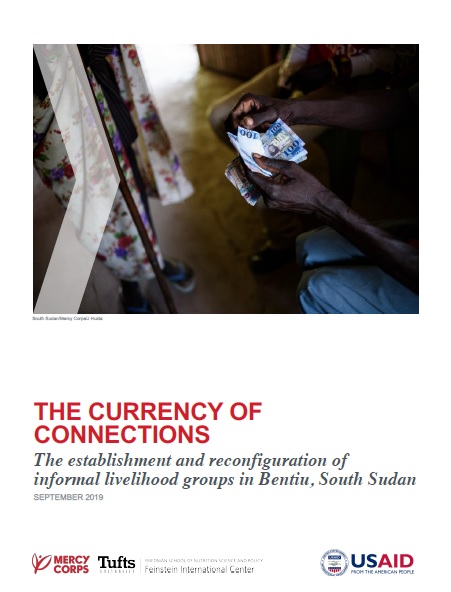This briefing paper explores the establishment and reconfiguration of informal livelihood groups and associations as a form of socioeconomic connectedness in Bentiu, South Sudan. By considering these dynamics, aid actors can better understand various livelihood-based strategies that households rely on to cope and adapt during displacement. This understanding may help aid actors to maximize the effectiveness of their interventions and to avoid inadvertently undermining key sources of household resilience. We draw from interviews and focus group discussions conducted between December 2018 and March 2019 with displaced residents in the Bentiu Protection of Civilians site and with residents in the adjacent towns of Bentiu and Rubkona to shed light on the various forms of support that these groups offer to members and non-members.
The project is carried out in a partnership between Mercy Corps and Feinstein International Center. This report is made possible by the support of the American People through the United States Agency for International Development (USAID), with support from the Office of Foreign Disaster Assistance. The views expressed in this report do not necessarily reflect the views of USAID or the United States Government.







